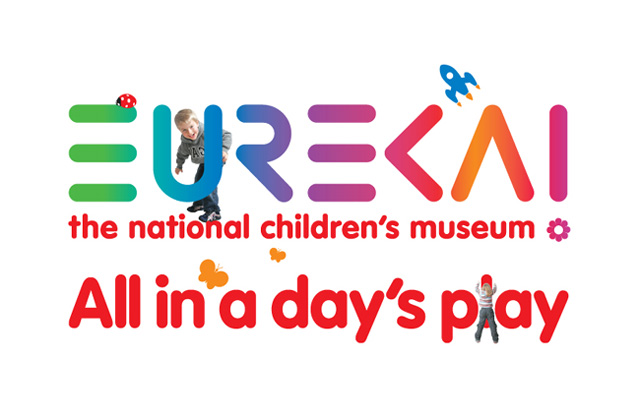At the Eureka! Nursery, a child’s whole day is about learning through play. Meal times are no exception, where the pre-school children really develop with the positive approach we take to include them in meal times. We have done some really exciting mealtimes for the children, to introduce them to new foods or experiences. An example of this was with the World Cup, where every day they had a new food from a different country. There was everything from South African ‘bobotie’, to Brazilian ‘feijoada’ and of course good old bangers and mash when England played!
Eating for England during the World Cup! |
However, learning isn’t just about new and novel experiences, although they’re really fun for all of us. We learn a lot through every day experiences, and at the Nursery we work hard to make sure that there are plenty of opportunities, from assisting setting places for dinner to learning to eat with a knife and fork—however messy that might be.
Each day in the Nursery, children take turns being the day’s superstar. With their ‘key person’ (a member of staff who has responsibility for monitoring the child’s development and providing them with in-depth personal support), they help to assemble the meals delivered from the Eureka! Café, lay tables and serve both meals and snacks. Today, it was Freya’s turn. She told me ‘I’m helping to give dinner out today, I’m the superstar’.
The other children are still involved too. Sam was waiting patiently for his dinner, but he still let Freya know ‘We need two more dinners over here please!’ Through these activities, they’re continually developing their personal, social and emotional skills and it’s a great confidence booster as children are so excited about having a role to play. Sam did a great job of demonstrating how these activities help children take ownership: not only was he applying knowledge by calculating how many dinners were left to serve, but he also had the confidence and self-esteem to articulate this to Freya and her key person.
Tea on this particular day was sandwiches. Another positive of having all of our children eat together and get involved in the mealtime process is they’re able to become more aware of each other, through speaking and sharing, and by learning to identify differences. Understanding dietary differences, due to allergies or cultural and religious beliefs is another key outcome for our children. Sam and Kai were putting together their sandwiches, and as Sam put a slice of ham on his bread he looked at Kai and said: ‘You have to have cheese Kai, cause you’re vegetarian, aren’t you?’
Having your child involved in food preparation gives them ownership and encourages independence |
They’re also aware of healthy eating practices—something very important these days! Oliver was quick to point this out, telling Molly: ‘You have to eat your carrots Molly, because you want to get big and strong, like my daddy! And my daddy goes to the gym too’. What was really lovely was that it was Oliver and his friend Molly having a conversation. He wasn’t ‘telling’ her, he was sharing the knowledge he’s gained at home and in the nursery.
There’s so much to learn from a simple meal time, as we know very well here at the Nursery. For us though, one of the most important reasons for getting the children involved with dinner is that they’re having the chance to take pleasure in who they are and what they can do. They’re learning about their identity and abilities, and that in turn helps them in how they share and learn with others.
Meal times are a great way to get involved with your child’s learning. Here are a few easy things you can do at home!
- Learn more about different cultures through your meals. Even something as simple as having a Chinese takeaway and eating with chopsticks can introduce new ways of eating.
- Let your child help with meal preparation, and eat with cutlery just like the grown ups. Not only do they have ownership in what they’re eating, but any opportunities to develop complex physical skills (like those used for grating, chopping and peeling).
- The table settings might not be perfect, but setting out the dishes and spoons develops understanding of maths, and helps with spatial awareness.Ask questions and encourage a discussion at dinner.
- When you’ve just learned something, you want to share it… and a child is no different! Linking experiences helps children to develop a positive sense of community and expand their vocabulary.
Do you have any ways that you get your child learning at mealtimes? What works well for you?
Clare Dean is an Early Years Professional in the Eureka! Nursery.







